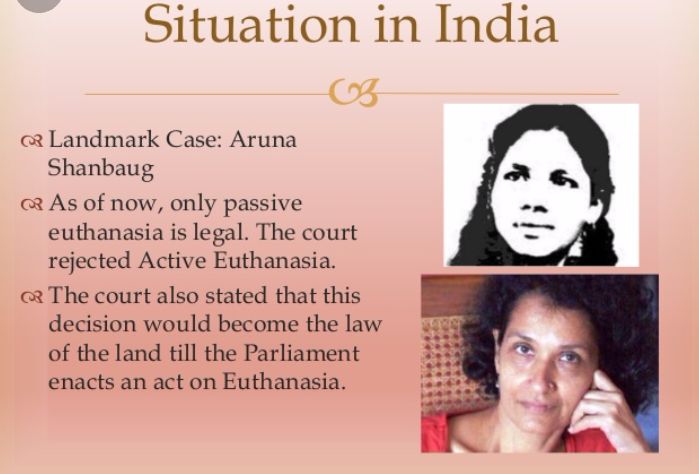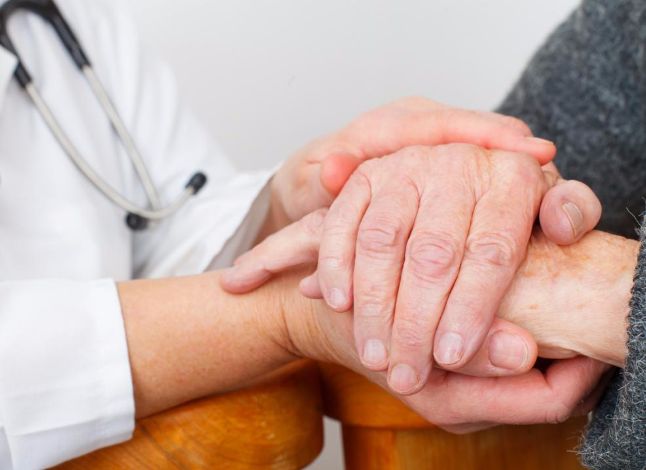Euthanasia
Jul 04, 2019 • 22 views
Euthanasia is simply a Greek word which means 'good death'. When literally translated into English, it means mercy killing. By the gentle act of mercy killing, the death is caused to a person who is terminally ill and whose continued existence might cause untold sufferings to the ill person, family and the society. In this case, death is caused by either passive or active euthanasia.

Passive method involves deliberate withdrawal of life support systems so that a patient is allowed to die naturally. Active euthanasia is caused by the use of lethal drugs and it is the most controversial. For years, mercy killing has been the subject of fierce debate in various countries. Doctors around the world are not allowed to assist their patients to die. In 2002, Netherlands became the first country which legalised euthanasia. Belgium also passed a law to this effect. Mercy killing is legalised in a very few European countries and a few states of America. In Asia, Thailand is the only country that permits mercy killing.
In India, a sort of beginning was made in 1994, when the Supreme Court in a verdict declared that attempted suicide is not a crime. The verdict amounted to declaring euthanasia legal. But in 1996, five-judge Constitution bench declared an attempt to commit suicide illegal. In a more recent development, the government has decided to delete Section 309 of the Indian Penal Code that criminalizes attempt to suicide.
In 2008, Law Commission took the first step towards legalizing mercy killing. The commission recognized the validity of the statement 'life does not mean animal existence' and recommended to the government to make euthanasia legal. If a person is unable to take normal care of his body or has lost all senses, he can not be compelled to continue with a torturous and painful life. In situation like this, it is brutal not to allow them to die. It is quite sound logic to save a person from the torture and agony of life.

In 2011, a landmark judgment given by the Supreme Court legalized passive euthanasia rendering thousands of patients who were living in a vegetativestate, the right to withdraw the artificial life support system to enable them to finish off a life of afflictions and misery. However, the Supreme Court ruled out an active euthanasia which involves giving terminally ill patients lethal drugs to end life. The verdict clearing the way for passive mercy killing is a big leap forward. Now it is for the government to make a law on the subject. Besides, saving a terminally ill patient's right to die will lighten the burden of the society. The time of doctors and the space in hospitals can be utilized for those who life could be saved.
However, it is feared that mercy killing will open the flood gates of abuses. Can doctors be relied upon to do justice and honour to their profession? How many of them abide by the Hippocratic oath in normal circumstances? They may misuse their powers and knowledge in collusion with the relatives of the patient or outsiders. But we all know that every law is subject to misuse.

There have to be stringent safeguards to prevent the misuse. Those against mercy killing say that doctor should not be invested with the power of providence. He should not play God. Despite all this it is the wish of many to die a painless death. Dying by inches lowers the dignity of a patient. The basic concept of good death means that a man should be able to exercise free will to choose alternatives to die if life becomes unbearable and torturous.
